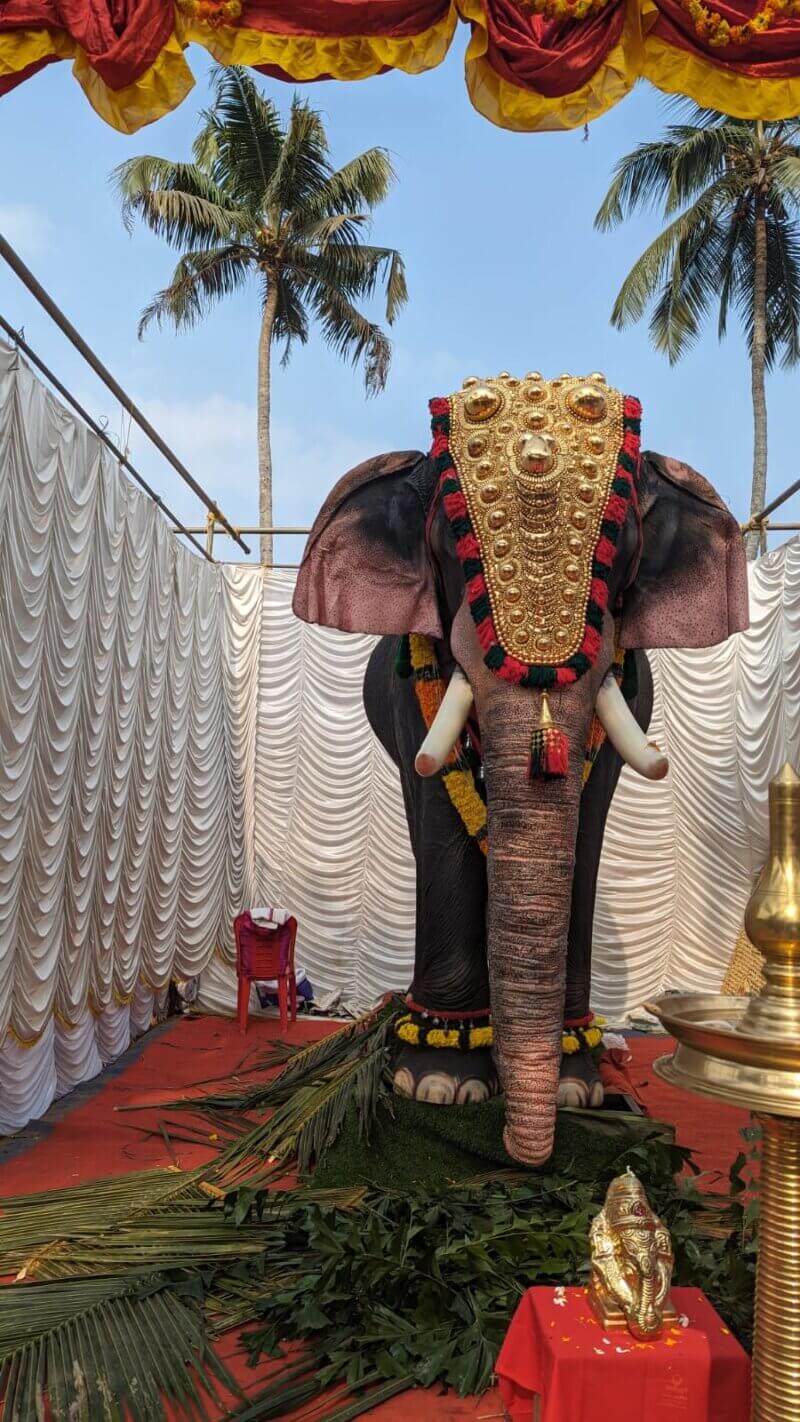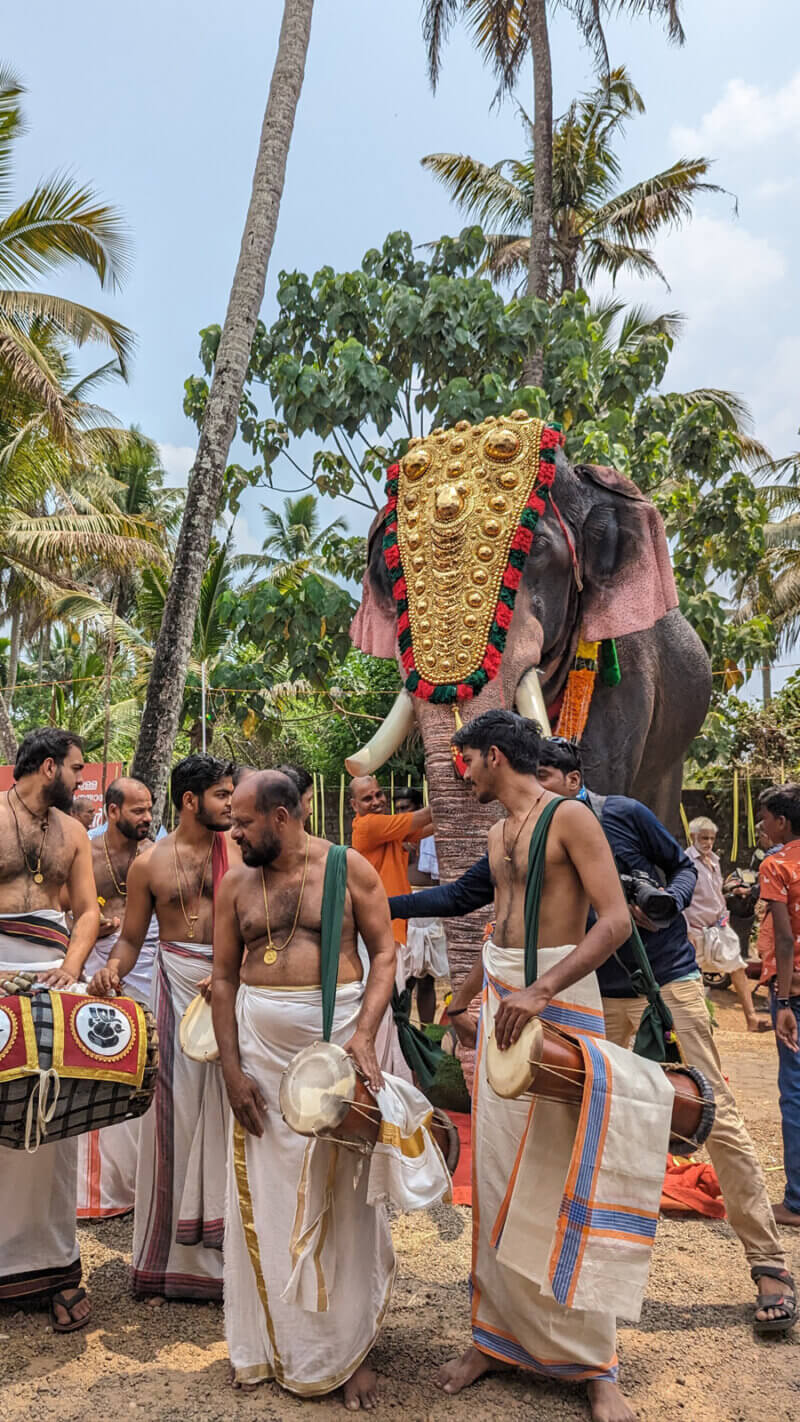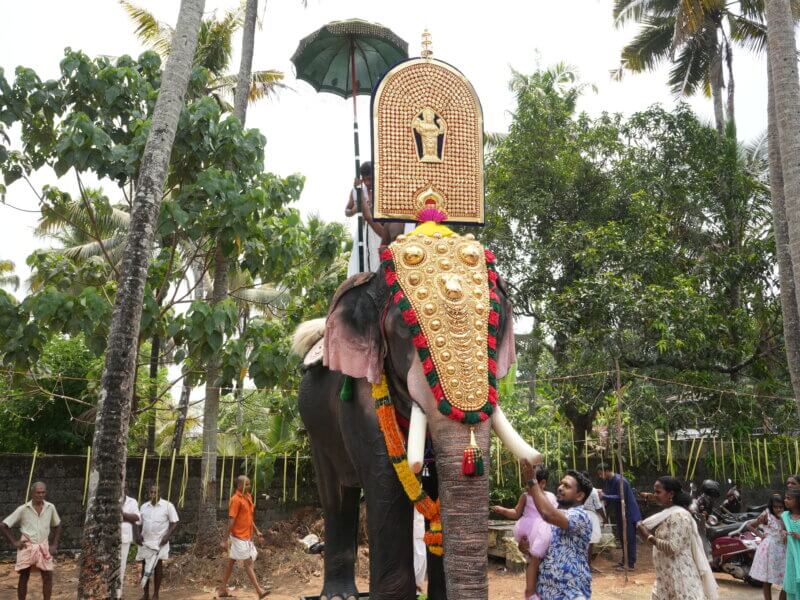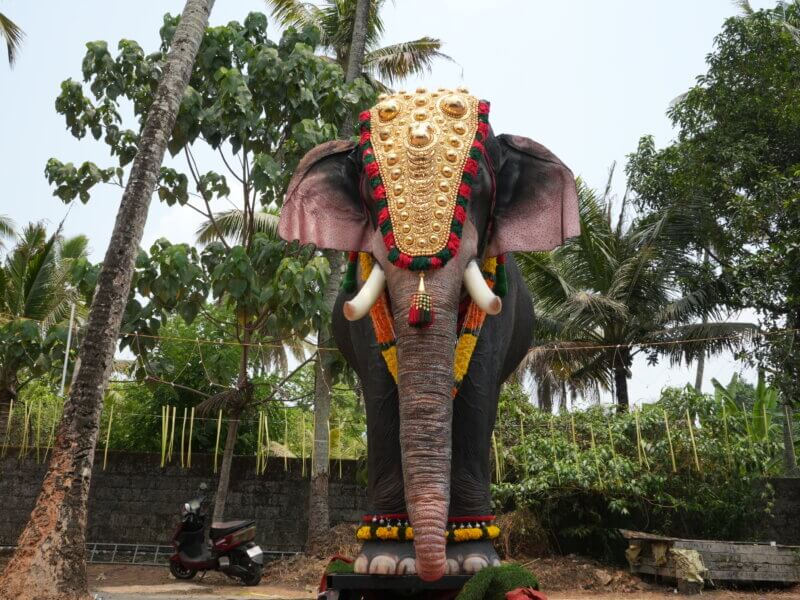First Temple in Kochi Celebrates ‘Nadayiruthal’ With Life-Size Mechanical Elephant, Mahadevan, Gifted by Actor Priyamani and PETA India
Actor Priyamani and PETA India have donated a life-size mechanical elephant, Mahadevan, to the Thrikkayil Mahadeva Temple in Kochi in recognition of the temple’s decision never to own or hire live elephants. Mahadevan will be used to conduct ceremonies at the temple in a safe and cruelty-free manner, helping real elephants stay with their families in the jungle. The inaugural ceremony held at the temple was followed by a traditional chenda melam performance by Master Vedharth Raman and his band and a panchavadyam by Venu Marrar and his band.
“Advances in technology mean we can maintain our rich cultural practices and heritage while ensuring animals are not harmed,” says Priyamani. “It gives me great pleasure to donate this mechanical elephant with PETA India to allow devotees to take part in auspicious ceremonies in a safe and animal-friendly manner.”
“We are very pleased to use mechanical elephant Mahadevan in reverence to all of the animals created by God who want to live free and safe with their families just as humans do,” says Thrikkayil Mahadeva Temple owner Thekkiniyedath Vallabhan Namboothiri.
Elephants in Captivity Endure Illegal Abuse and Cruel Exploitation
Many elephants in captivity in the country, including in Kerala, are being held illegally or have been transported to a different state without permission. Because elephants are wild animals who would not willingly obey human commands, when used for rides, ceremonies, tricks, and other purposes, they are trained and controlled through severe punishments, beatings, and the use of weapons with a metal-tipped hook. Many have extremely painful foot ailments and leg wounds from being chained to concrete for hours on end, and most do not get adequate food, water, or veterinary care, let alone any semblance of a natural life.
Elephants’ Abnormal Behaviour as a Result of Captivity Leads to Fatal Consequences
The frustration of captivity leads many elephants to develop and display abnormal behaviour. At their wit’s end, frustrated elephants often snap and try to break free, running amok and so harming humans, other animals, and property. According to figures compiled by the Heritage Animal Task Force, captive elephants killed 526 people in Kerala in a 15-year period. Thechikkottukavu Ramachandran, who has been in captivity for about 40 years and is one of the most often used elephants in Kerala’s festival circuit, has reportedly killed 13 individuals – six mahouts, four women, and three elephants.
We encourage all venues and events using elephants to switch to lifelike mechanical elephants or other means in place of real animals. Elephants already in captivity should be retired to sanctuaries where they can live unchained and in the company of other elephants, healing psychologically and physically from the trauma of years of isolation, captivity, and abuse.












